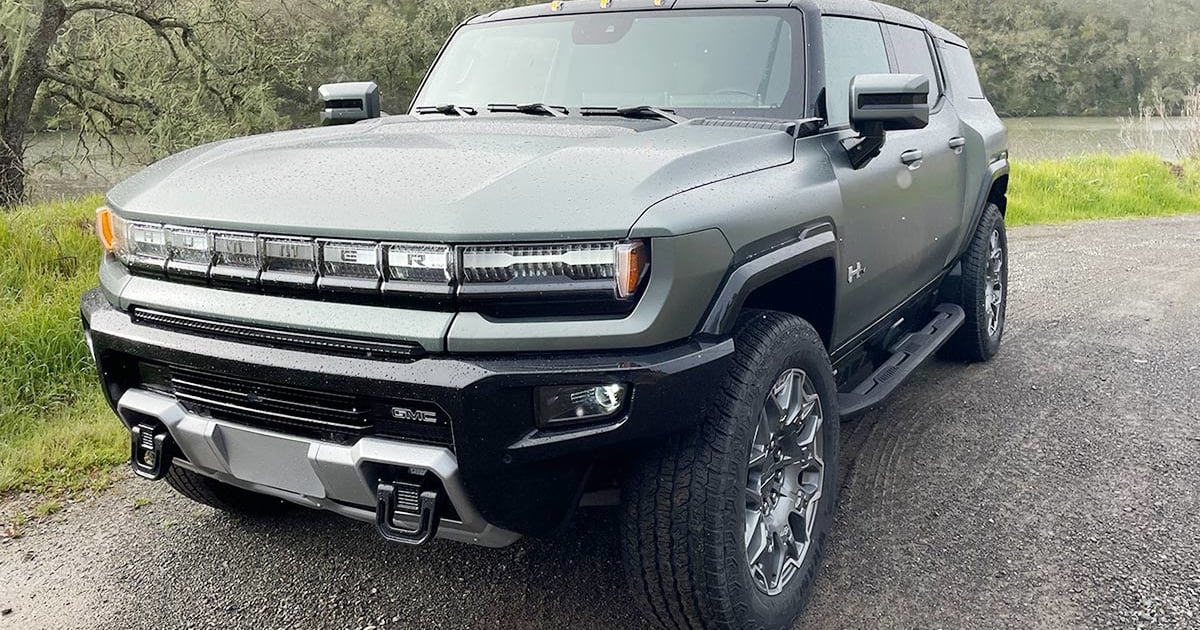
GMC has been pushing prices and content for its premium trucks and SUVs into luxury vehicle territory — and that upward climb may not yet have peaked.
The brand’s average transaction price last year was $59,031, according to GM Financial data that GMC provided to Automotive News. It rose to $62,367 in the first quarter of this year, the data show.
GMC’s average pricing in 2022 was $60,069, compared with average luxury pricing of $66,242, according to data from third-party auto research site Edmunds. GMC’s average price has continued to rise, to $63,731, this year through February.
Data from auto research site Kelley Blue Book shows similar trends.
And GMC will stretch even higher as the brand anticipates two newer top trims — Denali Ultimate and AT4X — will come to market in greater numbers this year after supply constraints limited their availability in 2022, said Duncan Aldred, vice president of global Buick and GMC.
GMC’s move upmarket is happening alongside rising transaction prices industrywide. The pandemic and shortages of critical parts, including semiconductors, prompted automakers to prioritize their limited microchip supplies for higher trims and their most profitable vehicles. That has contributed to surging prices that some analysts say is now squeezing some buyers out of the new-vehicle market entirely.
GMC has followed the industry’s move upward, analysts told Automotive News. Its lineup — primarily trucks and SUVs — is positioned to benefit from market trends and customer preferences for more technology, plusher interiors and additional content.
Yet Aldred said that while GMC may be comparable to luxury brands in pricing, it does not position itself as one.
“We’re not a luxury brand, but we do operate at luxury prices,” he told reporters in March at a media drive event for the GMC Hummer EV SUV. The Edition 1 version starts above $105,000.
The upper levels of what consumers are looking for in GMC appear to be “pretty, pretty high,” he added. “We probably haven’t found the top stop yet.”
The industry traditionally has thought about luxury vehicles as expensive products loaded with technology and features, said Michelle Krebs, executive analyst with Cox Automotive. More and more, that includes trucks and SUVs.
“I have long said that GMC is a luxury brand. It’s just because it sells just trucks and SUVs, for some reason, we have in our head it’s not a luxury brand,” Krebs said. “I think you have to define what luxury is. Because if you look at the average transaction prices on pickup trucks — and they can be pretty fancy — they are luxury vehicles.”
Aldred credited the brand’s Denali and AT4 trims — which he said have grown into subbrands — for GMC’s pricing power. Close to half of all GMC vehicles sold to retail customers in the U.S. were one of those two trims last year, according to the brand.
The introduction of the Denali Ultimate and AT4X lines are a way “to really push the upper echelons of where can we take GMC,” he said.
The Denali Ultimate trim comes with GM’s Super Cruise hands-free driver-assist technology, along with luxury features around infotainment, connectivity and materials, Aldred said. AT4X offers additional capability and luxury features beyond the AT4 off-road trim.
“We really felt we could take these to a new level,” he said, adding that they are bringing new and more affluent customers to the GMC brand. “If you get in either of these vehicles, you’ll see really high levels of luxury in terms of the materials in the vehicle, but you’ll also see all the latest technology.”
Average transaction prices across the industry will moderate as production normalizes after years of supply constraints, said Srini Rajagopalan, managing director of data and analytics for J.D. Power, particularly as automakers build more entry-level models and base trim levels. But, he added, automakers also have learned that they don’t want to overproduce and discount to move metal.
People are still willing to pay more than $100,000 for luxury or niche vehicles, and profit margins on them are good, so it makes sense for automakers to keep building them, said Jessica Caldwell, executive director of insights at Edmunds.
Pricing on the Denali versions of the Yukon and Yukon XL full-size SUVs, for instance, topped $90,000 this year through February, according to Edmunds data.
“I don’t think every brand can do that,” Caldwell said. “It probably is a bit easier [for GMC] because they have always been that step above the mainstream.”
Yet, she added, it is important for brands to also be mindful of consumers who need to purchase at lower price points.
Aldred said GMC’s pricing strategy does not leave behind buyers, such as for its smaller crossovers and midsize pickups, and has built a lineup that supports both.
Consumers can still buy a full-size GMC Sierra pickup in the $40,000 range, said Bo Mandal, CEO of Mandal Automotive Group in Mississippi, who has a Buick-GMC dealership. But consumer demand is “incredibly high” for Denali and AT4 vehicles, as well as for the Yukon large SUV, he said.
The content and features GMC is putting in its vehicles are comparable to luxury brands, said Mandal, chairman of the Buick-GMC National Dealer Council, who also has a BMW store. A truck today can be a family vehicle, he added, not just a household’s second vehicle.
“The premium truck’s the more popular truck right now, no question about it,” he said. “That’s what everybody wants.”
Aldred said he thinks shortage-driven pricing, including dealer markups, has somewhat settled down, and buyers of fast-turning top-end vehicles likely are less affected by interest rate hikes and high monthly payments.
“Certainly for GMC,” he said, “we’re still seeing that [demand] is remaining very robust indeed.”